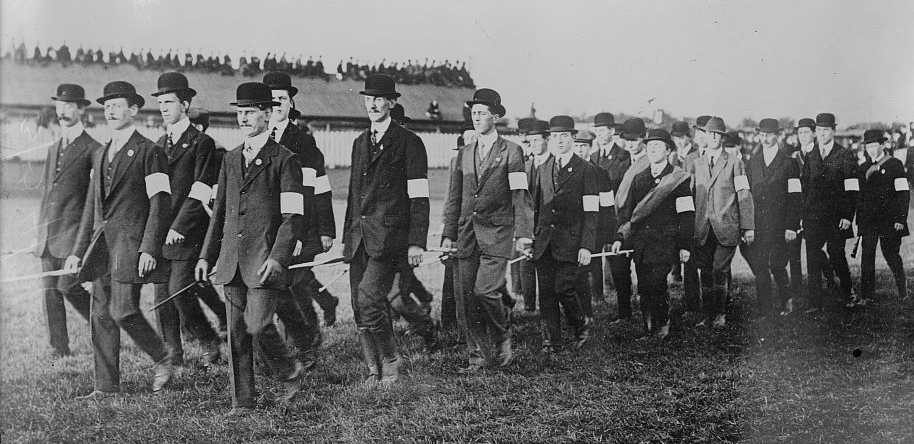Controversial new Special Constabulary to be created for Ulster
Creation of force is an ‘organised conspiracy’ against catholics, Devlin claims
Belfast, 2 November 1920 - Recruitment has begun for a new and controversial Special Constabulary for Ulster.
The establishment of the force has the backing of Sir Edward Carson and the leaders of Ulster unionism.
The new Ulster force will include a large number of unpaid volunteers who will work in conjunction with, and under the control of, the local police authority.
Speaking last week in the House of Commons, the nationalist MP for Belfast Joseph Devlin questioned the plan to employ members of the Ulster Volunteers as special constables, particularly in light of the recent violence in Belfast and Lisburn in which some of those volunteers were involved. Devlin described the plans as an ‘organised conspiracy to place the lives and property of 500,000 catholics at the mercy of their political opponents, armed by the British government’.
In response the Chief Secretary for Ireland, Hamar Greenwood, explained that the government’s plan was to ‘enroll well-disposed citizens in the special constabulary to assist the police in the preservation of peace.’ Greenwood added that enrolment would not be confined to Ulster and the ‘strictest discipline’ that is ‘characteristic of the Royal Irish Constabulary’ would apply.
The Belfast Newsletter, in welcoming the new constabulary, has stated its belief that the force’s main political purpose is to ‘assist the military and police in combating the Sinn Féin campaign.’
The paper declares that government inaction in the rest of Ireland means that such force could not now work in the south and west of the country, ‘but here in the six counties it is very different. The very fact that Sinn Féin has sought to terrorise in Armagh, Tyrone, and Fermanagh has roused the loyalists of these counties to organise themselves for self-defence without government sanction and assistance.’
The Newsletter anticipates that the RIC will be disbanded and that a new police force will be established by the new northern parliament, and it has appealed to loyalists, in particular ex-servicemen and members of the Ulster Volunteers to give the force its backing.
The Irish Independent considers the new constabulary the completion of a move on Sir Edward Carson’s part to ‘kill trade unionism, and with it democracy.’ The new ‘army’ will be used, the Independent believes, to set catholic and protestand trade unionists against each other. The paper further states that the new constabulary is ‘but the first step in the process of partition.’
Make up of the new force
The special constabulary will be made of three sections.
Class A recruits will be comparatively few in number – with only a few hundred envisaged for the City of Belfast – and will be a full time force, with a minimum service term of six months and receiving a weekly cash payment of £3 17s 6d. They will only be employed only in the six Ulster counties set to come under the proposed devolved parliament and will be armed and equipped as regular members of the Royal Irish Constabulary.
Class B recruits will form a volunteer force and will operate under their own elected officers and NCOs but in the execution of their duties will act under the control of the police authority in the locality in which they serve.
Class C recruits will form a body of reservists. Both Class B and C would be made up of unpaid volunteers; the number envisaged for service in the Belfast areas of these two sections is about 10,000 and the hours of duty will be arranged so as not to interfere with the hours of work.
[Editor's note: This is an article from Century Ireland, a fortnightly online newspaper, written from the perspective of a journalist 100 years ago, based on news reports of the time.]





















